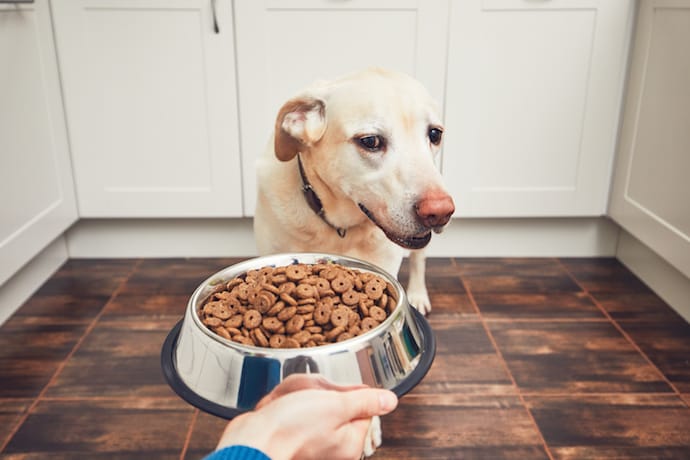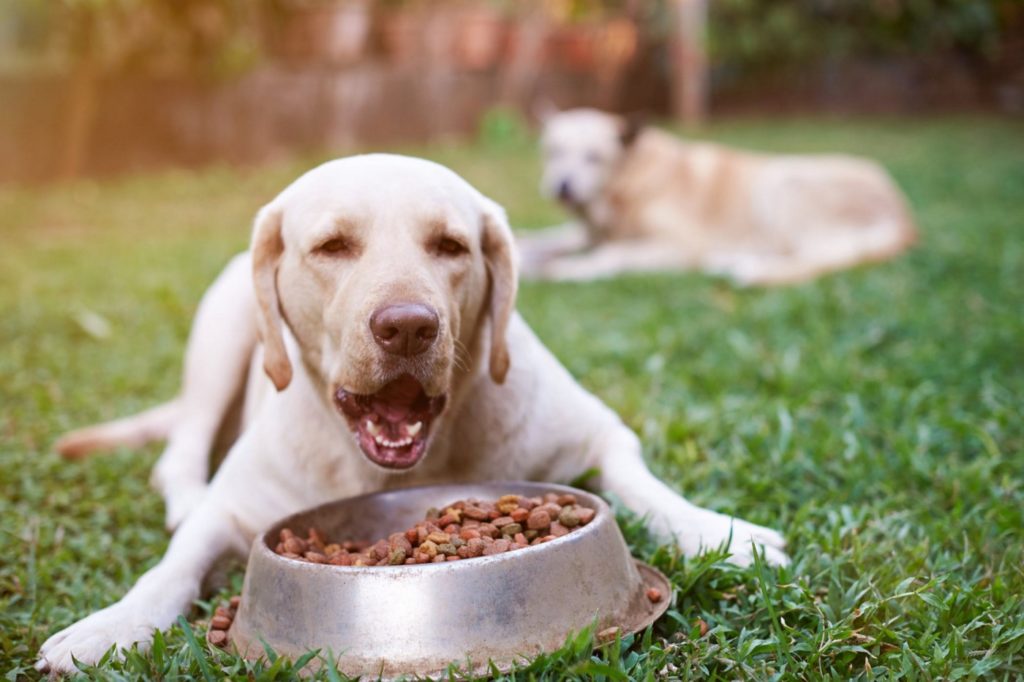Loss of appetite in dogs is a symptom that could indicate a multitude of underlying issues. A little stressor to a life-threatening sickness could be the underlying cause. Most dogs do not refuse to eat more than two meals at a time. Loss of appetite in dogs is a warning sign of a significant underlying condition, which can range from depression to cancer.
A stressful situation or an upset stomach can sometimes be to blame, but these issues usually resolve themselves within a day. If your dog hasn’t eaten in more than 48 hours, take them to the veterinarian right away. However, a loss of appetite that lasts longer than 1-2 days could indicate a medical problem that should not be ignored.

Above all, you should keep track of any changes in your dog’s eating habits. It’s possible that your dog isn’t eating the proper amount of food, but if your dog is a light eater or is small for its age or breed, this isn’t a symptom of hunger. The major cause for concern is when a dog who is usually enthusiastic about its food loses interest. Something is wrong if you lose your appetite all of a sudden. It could be something as easy as your dog feeling under the weather after receiving immunizations, or it could be an indication that your dog is unwell and requires medical attention.
Causes of Loss of appetite in dogs
Loss of appetite in dogs can be caused by a number of factors, including:
- Anxiety
- Distress
- Unwanted food
- Environmental Alteration
- Dietary Adjustment
- Change in Daily Routine
- Medication
- Infection
- Cancer
- Pain
- Toxin exposure
- Dental issues
- Cardiovascular disease
- Gastrointestinal disease or blockage
- Endocrine condition
- Autoimmune disease
- Respiratory illness
- Neurological disease
Symptoms of Loss of appetite in dogs
The following are signs that your dog has lost its appetite:
- Consuming fewer calories than normal
- Refusing to eat anything at all
- Refusing to consume treats
- Attempting to eat
- being unable to complete a meal
- Loss of weight
- Energy deficiency
- Vomiting
- Weakness
Diagnosis
When the loss of appetite in dogs started, the veterinarian will want to know if your pet tries to eat but can’t or doesn’t try at all. Any recent dietary or environmental changes can be useful information. An inspection of the mouth, teeth, and throat, as well as belly palpitation for suspected pain or lumps, will be part of the physical examination.

Blood tests may be used in laboratory diagnostics to detect any abnormalities in the liver, kidney, or other organ functions. Intestinal parasites can be detected with a fecal examination. Radiographs will aid in the visualization of any abnormalities in the abdomen or chest. Endoscopy can be done to see how the throat, stomach lining, and upper small intestine are doing.
It’s also worth noting whether any environmental or dietary changes have occurred that could be affecting your pet’s decreased appetite. If you’ve recently modified your diet, consider going back to it or adding a bit of low-sodium chicken or vegetable broth to increase your appetite. Monitor your pet over the next 24 hours, and if the low appetite persists, or if you find the pet has no bowel movements, diarrhea, or vomiting, take him to the veterinarian for an examination.
Treatment
One of the most essential things is to determine the cause of the loss of appetite in dogs and treat it as soon as possible. This could be an infection that requires antibiotics or symptomatic treatment, or it could be a dental issue that causes your dog pain when eating. Whatever the cause, the underlying cause of loss of appetite in dogs must be addressed in order to resolve the problem. There are other appetite stimulants that can be given to your dog to try to get him to eat. Your dog may be given intravenous fluids with electrolytes in the veterinarian’s office, especially if it hasn’t had water in a day.

An intuitive eating strategy will be implemented once the pet has been stabilized. Typically, a bland diet will be provided for two to three days, with modest quantities supplied throughout the day. The diet will then gradually transition to a regular diet over the course of one week. If your pet’s appetite does not improve significantly within 1-2 days of being released, contact your veterinarian, and keep a close eye on his or her bowel movements and behavior.
RECOMMENDED ARTICLES

